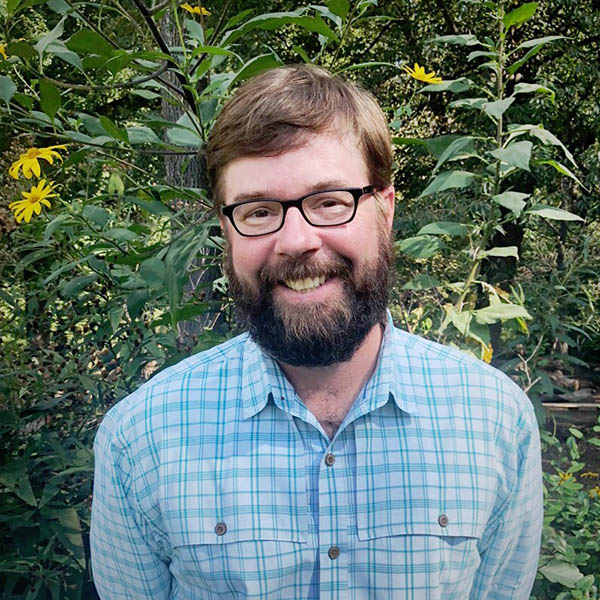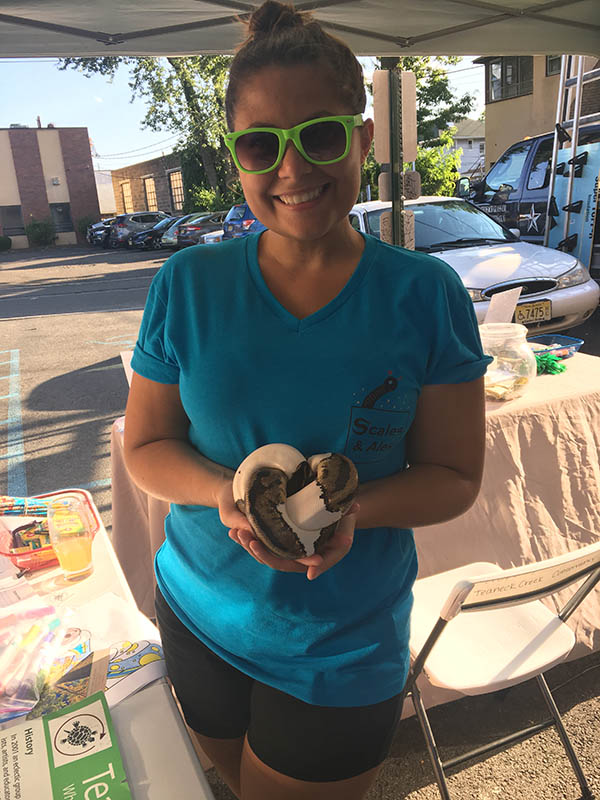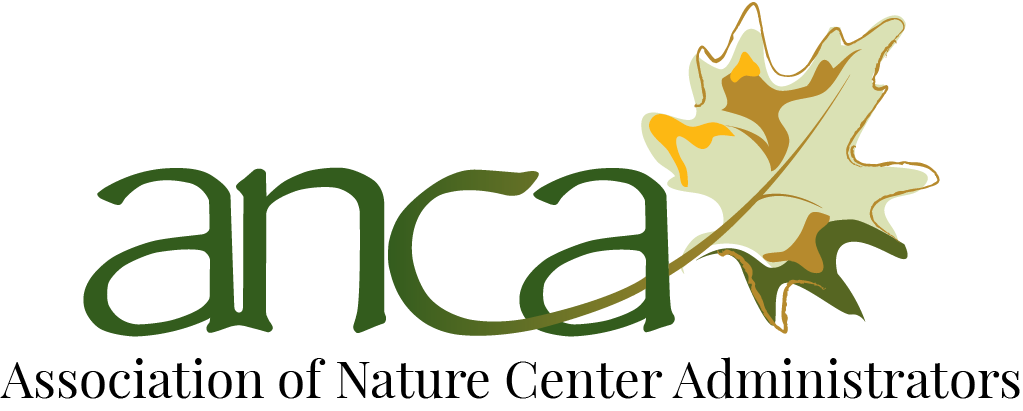By Asa Duffee
Marketing & Communications Coordinator, ANCA
Note: This article was originally published in the Summer 2020 issue of Directions, the ANCA journal. Members can access the full issue via the member portal.
With the major changes brought on by the pandemic, our field faces radical economic challenges that have resulted in difficult decisions to furlough or lay off staff, with little certainty that organizations will be able to financially recover in the years to come. While right now there’s little certainty of anything in the future, some nature center leaders see this as a critical time to strategize finances on both an organizational and individual level.
“Thinking strategically right now when things are down is so important,” says Brooks Paternotte, Executive Director of Irvine Nature Center in Owings Mills, Md. “This is a time when you can make changes in how you approach the operation of your nature center as well as your financial planning.”
Individual financial planning — especially saving for retirement — was one of the Open Space topics at ANCA’s 2019 Evolve Summit at the Cincinnati Nature Center in Cincinnati, Ohio. Here, we revisit the subject of how some nature center staff approach financial planning for the future, particularly in light of the pandemic.
Note: ANCA recognizes that with the pandemic, many people within our field are struggling to make ends meet in the present and simply cannot invest in their financial future — and we want to be sensitive to this fact. Nevertheless, we believe it is important when possible to strategically think of one’s financial health and future, even in the face of economic challenges and uncertainty.
Ensuring financial viability within our field
Becoming particularly wealthy is usually not the main goal of people who work in our field. Anyone who works at a nature center has some conviction in the mission of that organization, and likely feels fulfilled in working toward that mission.
“Most of the people that come to work at nature centers aren’t concerned about the money and making a lot of money,” Paternotte says. “They want to be able to live and they want to be able to retire.”
 Brooks PaternottePaternotte, who is 48, considers that to be a serious issue. While nobody expects to get rich by working at a nature center, there still has to be some degree of financial viability — and it takes both the individual and the organization to make it financially viable. Just because we work in a modest profession “doesn’t mean we can’t plan for retirement and invest,” Paternotte says.
Brooks PaternottePaternotte, who is 48, considers that to be a serious issue. While nobody expects to get rich by working at a nature center, there still has to be some degree of financial viability — and it takes both the individual and the organization to make it financially viable. Just because we work in a modest profession “doesn’t mean we can’t plan for retirement and invest,” Paternotte says.
In other words, if an organization is providing a livable salary, then the individuals working at that organization need to be strategic about their financial planning for the future.
Organizations in our field can improve employees’ financial planning
Saving for one’s future isn’t solely the responsibility of the individual, however. Organizations play a large role in how individuals are able to save, whether they offer a match on a retirement account or other benefits that lessen the financial burdens on employees.
Paternotte notes that if employees don’t feel financially secure, organizations “can’t retain excellent staff and we’re always going to be losing them after a couple of years — and that hurts us, there’s a cost associated with that. So why not invest in them on the front end rather than spending money replacing and training?”
As part of its investment in staff, once each year, Irvine Nature Center brings in a presenter from their retirement company to discuss investment options with Irvine employees. The goal is to give more control to staff members while also increasing their financial literacy, especially for younger staff.
The nature center has further tried to increase financial literacy by having a more transparent budget and spreading financial responsibility across the organization. Both senior and junior staff have budgets they must plan; doing this gives them both more ownership of the organization and also a better understanding of how money works in a nonprofit setting.
Because of this, Paternotte says, “we have a much more informed budget and a much higher degree of financial literacy in terms of budgeting than we ever have.”
The challenge of saving when you’re just meeting your needs
Of course, saving money for the future is not easy or possible for everyone.
Having two masters degrees and being an executive director, one might think that Alexa Fantacone at Teaneck Creek Conservancy in Teaneck, NJ, would feel financially secure — but that’s not the case. Fantacone, age 28, expresses concern about the challenging economy, especially where she lives.
 Alexa Fantacone“Living in New Jersey, with one of the highest costs of living in the country, has played a factor into what is … sustainable financially,” she says.
Alexa Fantacone“Living in New Jersey, with one of the highest costs of living in the country, has played a factor into what is … sustainable financially,” she says.
Noting such ongoing costs and the current economic uncertainty, Fantacone hasn’t been able to invest in her IRA as much as she would like. “I would love to be able to plan better for the future,” she says. “But right now it’s kind of what makes ends meet.”
Fantacone adds that she and her husband aspire to buy a house and have kids, which are more immediate financial considerations. “And with all that, how do I think of retirement at this point?”
The context of one’s organization can impact one’s ability to invest, too; a relatively young organization does not have the same financial backing of an organization that has been growing an endowment for decades.
Adapting to changes in the economy
Fantacone also mentions the changing economy as a factor she considers when looking to the future. Whereas previous generations have been able to rely on stability in their careers, millennials don’t feel that stability, now having seen the pandemic, the Great Recession, and the rise of a gig economy. “It is a little bit more concerning that I don’t necessarily have a full plan for five years down the road because I don’t know what the turn will be,” she says.
 Charity KruegerOffering a perspective from retirement, Charity Krueger, retired Executive Director at Aullwood Audubon Center & Farm, says that diversity in financial sources will reduce reliability on just one source. “Diversify as much as you can,” she says, and investigate all possible options for saving money, even outside of your institution.
Charity KruegerOffering a perspective from retirement, Charity Krueger, retired Executive Director at Aullwood Audubon Center & Farm, says that diversity in financial sources will reduce reliability on just one source. “Diversify as much as you can,” she says, and investigate all possible options for saving money, even outside of your institution.
Krueger recognizes that how she saved money throughout 33 years in the same position may not directly apply to young people just starting in the profession, with the larger economic changes taking place; even planning on social security is less reliable for younger generations. She still advises, though, that although the mechanisms for saving money are changing, people working in the field need to confront those changes directly.
“I have friends my age who are living paycheck to paycheck,” she says, and thus she urges all younger people to do what they can to avoid that situation in retirement.
Investing now will pay off in the future
In our field there’s an oft-repeated proverb that has various incarnations but goes something like this: “The best time to plant a tree was 20 years ago. The second best time is now.”
The same principle applies to how we as nature center professionals invest financially. Since we don’t work in a particularly lucrative profession, we must think strategically about how we invest for the future, and time is the most effective tool in that investment. The earlier we invest, the more we can reap later.
Of course, especially in the context of the pandemic, not all plans go as intended. “Who knows what the future will hold despite our best efforts to plan for it?” says Krueger, but she adds that it’s still important to invest in retirement and long-term care insurance as early as possible because they will most likely pay off later.
Paternotte is thankful that early in his career he had a mentor who urged him to start saving money, and he hopes that all young professionals can have mentors motivating them in that direction. But leaving that encouragement up to chance isn’t necessary, and that’s why it’s important that nature centers consider this matter on an organizational level.
“A lot of it starts with us as leaders advocating for it with our boards,” Paternotte says. “We need to be taking better care of people. We can’t offer large salaries — it’s just not what we can do, but what can we do to make it a livable experience?”
Fantacone agrees that encouraging financial planning for employees will make nature centers more effective in their missions. “The health of the organization is the health of the employees,” she says.
———
Want more stories like this? Check out the benefits of ANCA membership:

